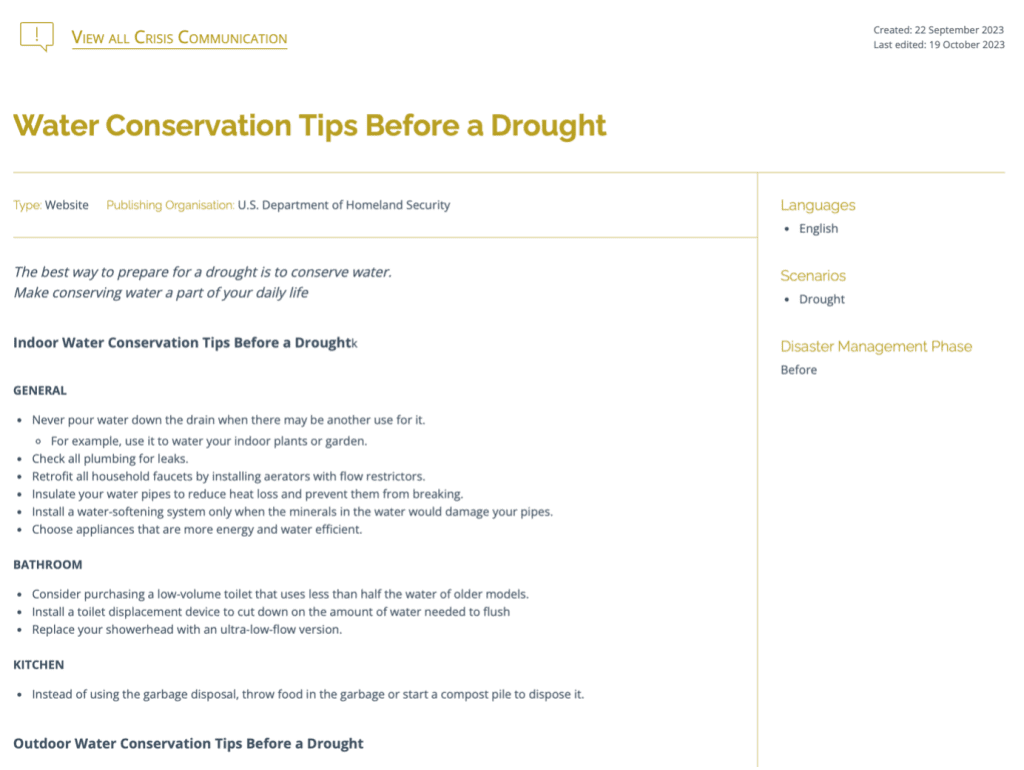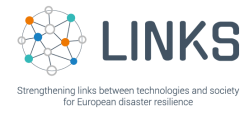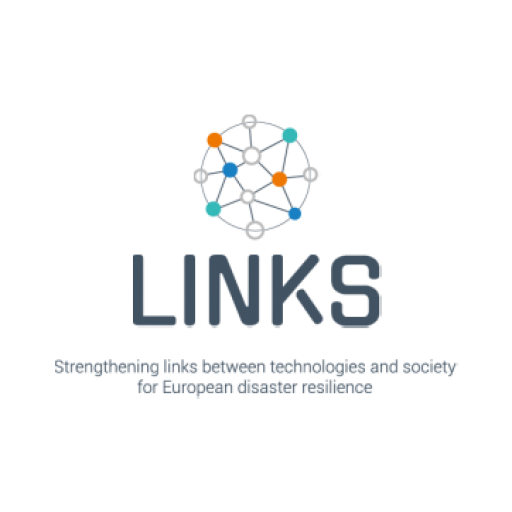
To provide valuable resources and support to disaster management organizations dealing with social media and crowdsourcing (SMCS), LINKS has developed four “Libraries” (structured collection and categorization of information) by the end of the project. As we have learnt in the project, disaster management organizations are expected to maintain a presence on social media platforms, and effective communication of accurate and current information is imperative, particularly during crisis situations. Moreover, citizens also seek to actively participate in the information flow, such as by sharing their own observations or concerns through social media. Alongside rising expectations, the immense amount of data generated on social media during crises introduces a valuable information resource that can aid in crisis management, such as improving overall situational awareness. However, due to the multitude of posts, comments, and other interactions, social media becomes a complex range of tasks for disaster management organizations. Therefore, it is crucial for disaster management organizations to utilize technologies, develop and improve strategies to manage their social media and crowdsourcing activities.
Since the start of the project information related to SMCS technologies and guidelines were collected and made easily accessible within
- the SMCS Technologies Library (explained in the second newsletter) and
- the SMCS Guidelines Library.
According to the needs from the involved external stakeholders in project activities, the consortium spent further effort in developing
The libraries are accessible through the semantic knowledge management platform called the ‘LINKS Community Center.’ As a versatile web-based platform, the LINKS Community Center facilitates the sharing of knowledge and experiences regarding the use of social media in crisis situations. This platform is already open for public use. In the following, all four SMCS Libraries will be briefly presented.
Within the SMCS Technologies Library detailed information on technologies tailored for managing social media is presented. The goal is to offer a thorough overview that acknowledges the increasing variety and vast quantity of technologies present in the market. Consequently, this is intended to aid in choosing the right technologies for every stage of a disaster event. Users can employ the filtering system based on their requirements, such as selecting the relevant functional scope or supported social media platforms.
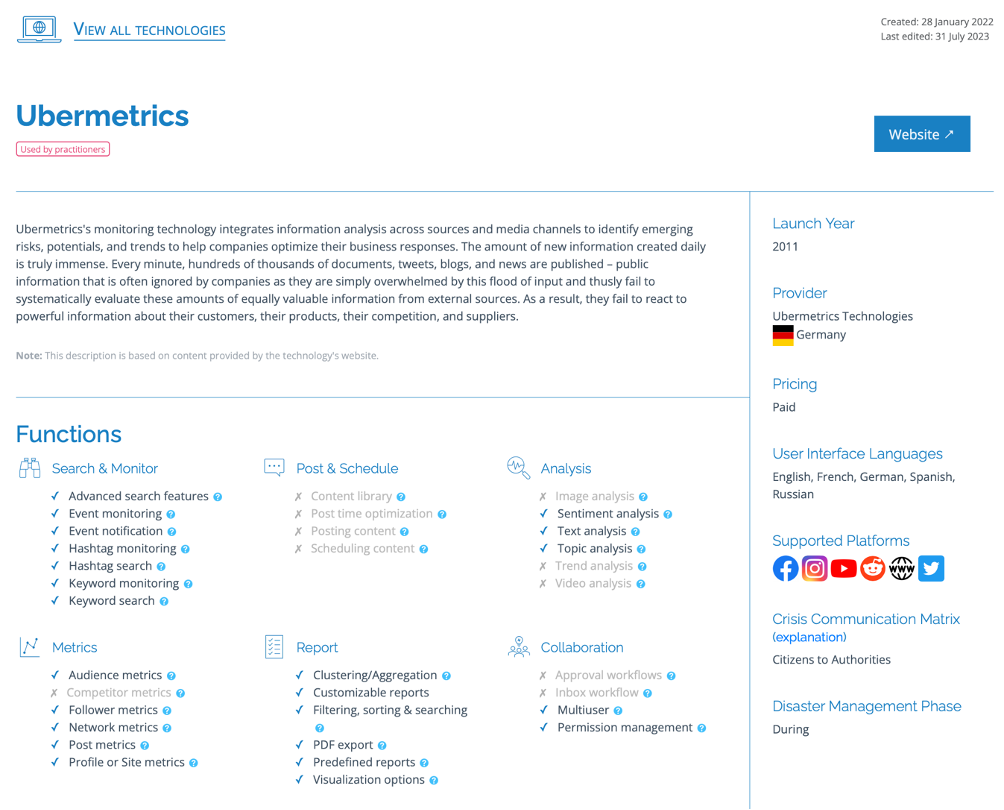
Within the SMCS Guidelines Library recommendations for action (e.g. guidelines, policies or SOPs) are made available for the implementation and use of social media in organizations. These suggestions aim to help in several areas, like establishing a social media team, devising strategies for monitoring social media during crises, and giving special attention to vulnerable groups when using social media. The filtering system assists users in locating the most appropriate guidelines by allowing them to filter based on criteria such as target audience or a specific disaster management stage.
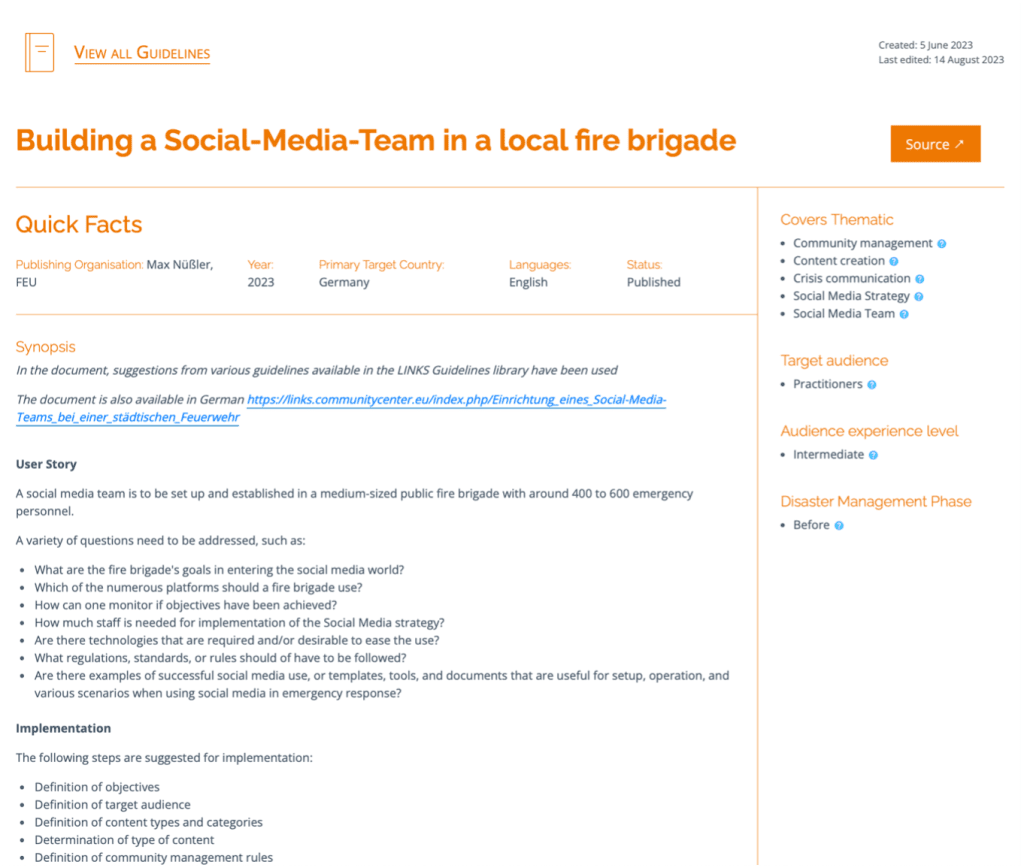
Within the SMCS Use Cases Library real-life examples and experiences of social media usage are collected and told by practitioners for practitioners. It showcases the actions taken by disaster management organizations before, during and after disaster scenarios and motivates to implement social media use effectively in practice. Using the filtering system, users can search for use cases most relevant to their situation, filtering by criteria such as hazard type or the theme of the use case.
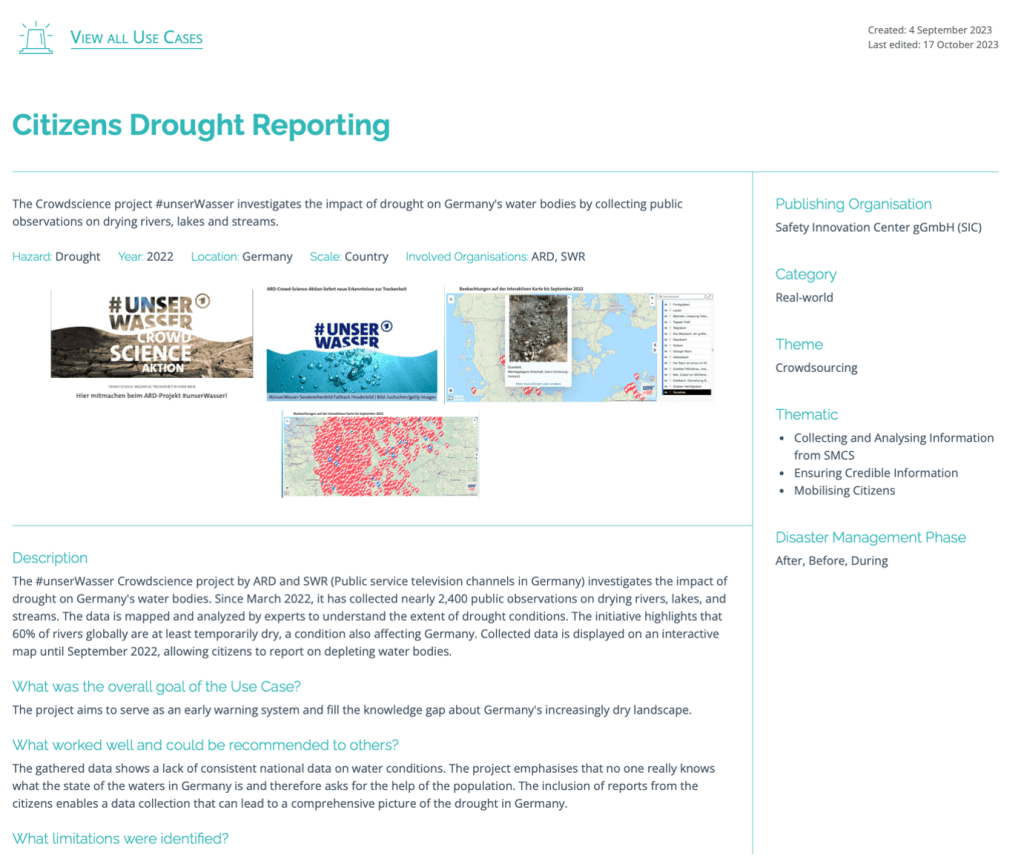
Within the SMCS Crisis Communication Library, recommendations to enhance efficient communication with the public through social media at all stages of a disaster are collected. Risk awareness, preparedness, and appropriate behavior during and after a disaster is key to mitigate its effects on people. The purpose of this library is to ease communication with the public via Social Media text messages taken from trustful resources. The library equips practitioners with websites and apps for crisis communication. Users can refine searches using filters based on type and scenario, and either utilize or share the content through their social media accounts.
